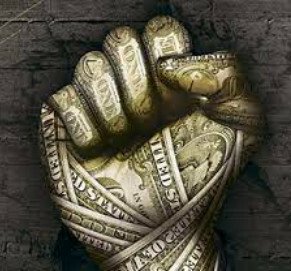|
Getting your Trinity Audio player ready...
|

The power of currency is amazing. Currencies are influenced by both external factors – like politics, economics and current events – as well as internal monetary policies. Understanding the power behind currency can help us make more informed decisions when dealing with foreign exchange. In this article, we will take a look at how currencies develop their value, how they behave in markets and how those forces affect our everyday lives.
What is the Power Behind Money?
At its most basic level, currency value is determined by supply and demand. When a country has a large amount of currency in circulation, it is said to have high liquidity. This means that there are many buyers and sellers and the exchange rate can remain stable. Countries with low liquidity, on the other hand, will often experience a fluctuating exchange rate as fewer people are willing to buy or sell their currency.
How Do External Factors Impact Currency?
External factors such as politics, economics, and current events can have a significant impact on the value of a currency. For example, if there’s political unrest in a certain country, investors may be less likely to invest in that country ’s currency, resulting in a decrease in its value. Similarly, a country that is experiencing strong economic growth may see an increase in its currency’s value due to increased demand for it.
How Does Monetary Policy Affect Currency?
Monetary policy also plays an important role in the development of currency values. Central banks can use a variety of tools to influence the money supply and thus affect interest rates and exchange rates. If a central bank wants to increase the money supply, it will lower interest rates and make borrowing cheaper. This will lead to more spending and investment, which could result in higher demand for the country’s currency. On the other hand, if a central bank wants to reduce the money supply, it will raise interest rates, making borrowing more expensive and resulting in a decrease in demand for the country’s currency.
How Do Currency Values Change?
Currency values are constantly changing. They can be affected by both short-term and long-term events, such as economic growth, political stability, and government policies. Short-term events may lead to sudden changes in currency values while long-term trends tend to have a more gradual effect. For example, a country experiencing strong economic growth may see its currency’s value increase over time as investors become more optimistic about the potential returns they could gain by investing in that country.
How Does This Affect Us?
The power behind currency affects us in many ways. It influences our ability to buy goods and services from other countries, as well as the cost of those goods and services when we purchase them. It also affects our ability to travel abroad and the cost of doing so. Understanding the power behind currency can help us make better decisions when it comes to foreign exchange and investing in other countries’ economies.
The power behind currency also affects businesses that operate internationally. Companies that rely on imports or exports must be aware of changes in currency values, as this can have a major impact on their profits. For example, if the value of a country’s currency decreases relative to other countries, it may become more expensive to buy goods from that country and thus reduce the company’s profit margin. On the other hand, if the value of a country’s currency increases, companies may benefit from lower prices when buying goods from that country.
How Does Currency Affect Our Everyday Lives?
The value of a currency can have a direct effect on our lives. For instance, if the value of a currency drops significantly, the cost of imports will increase as it takes more of that currency to purchase goods from abroad. Similarly, if the value of a currency rises significantly, exports become cheaper and more attractive to foreign buyers. In addition, changes in exchange rates can also affect how much we pay for travel expenses when visiting other countries.
Conclusion
The power behind the currency is complex, but understanding its dynamics can help us make more informed decisions when dealing with foreign exchange. External factors such as politics, economics, and current events can all have an impact on the value of a currency, while monetary policy also plays an important role in determining exchange rates. By familiarizing ourselves with these forces, we can better understand how currencies affect our lives and make more informed decisions when it comes to international transactions.

